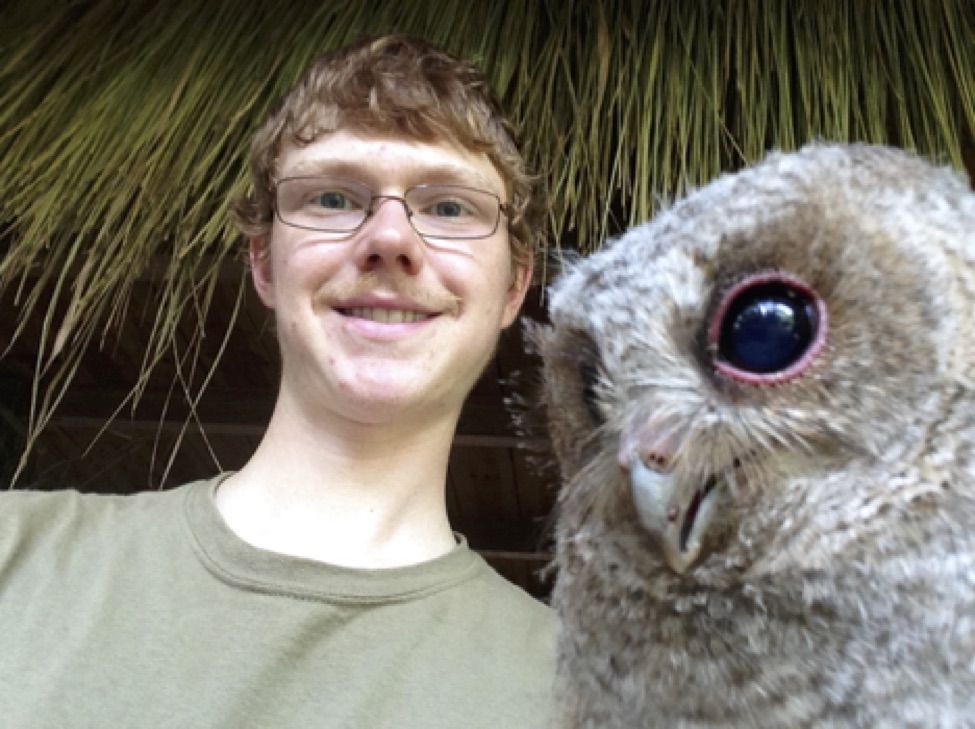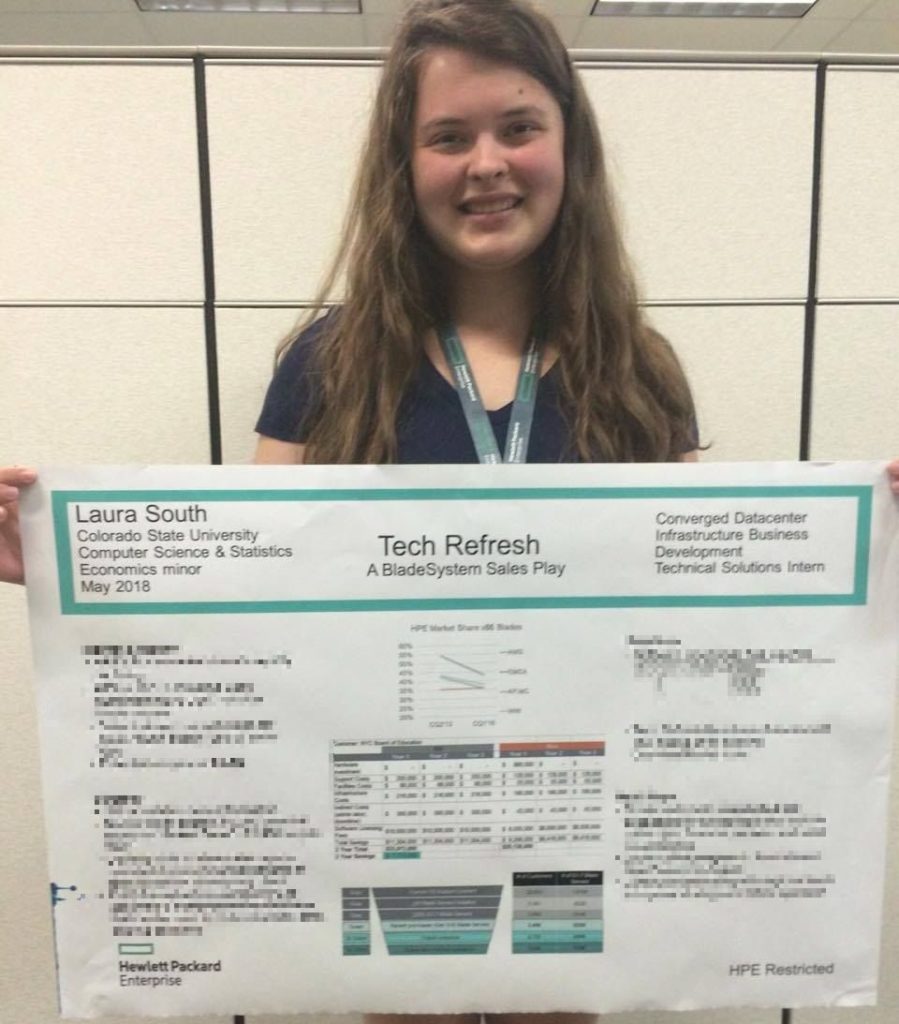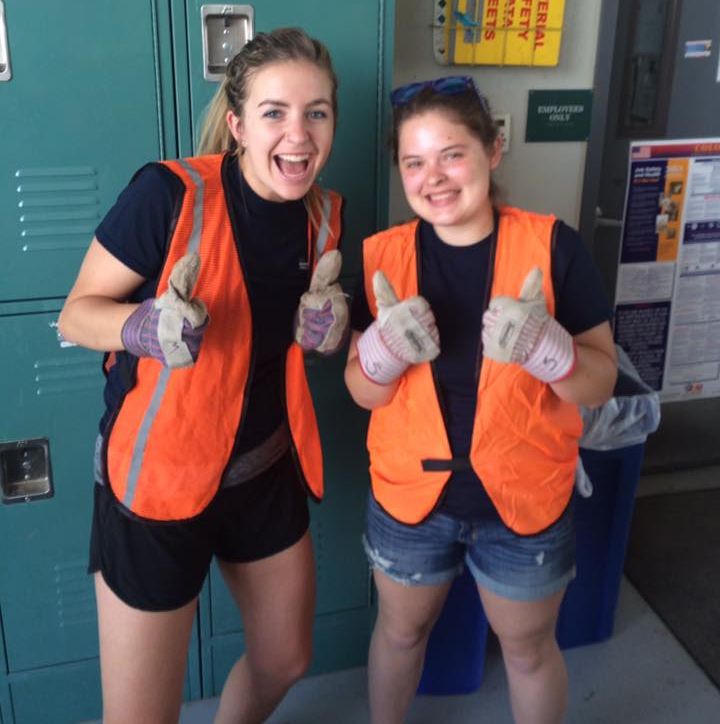Francis Commercon, biological sciences; fish, wildlife, and conservation biology
It is easy to forget that much of the rubber we rely on still comes from trees. And these trees, like many agricultural crops, are often grown in massive plantations, which can have negative effects on local wildlife.
One Colorado State University undergraduate spent the summer helping to improve our understanding of these ecological impacts on birds – and exploring alternative solutions.
Honors student Francis Commercon, who is studying both biological sciences and fish, wildlife, and conservation biology at CSU, was awarded a Spots Scholarship to intern for the World Agroforestry Center’s Green Rubber project this summer in a village in Xishuangbanna Prefecture in southern China.
Counting birds, bats, and perspectives

Commercon’s summer experience gave him lots of time in the field doing what he loves to do: looking for birds. “I spent the entire month of June conducting bird surveys on intended study sites,” he said. The data he collected will help other researchers understand what birds are currently living in the plantations – before other plants are added to see if additional flora will attract a wider range of (flying) fauna. It “will help us understand whether intercropping diverse species underneath rubber can improve rubber plantations for birds,” he said.
In addition to surveying birds in the plantation areas, he also took time to look into the local practice of bird and bat trapping in the forest. To do that he designed – and redesigned – surveys and collected information from community members to better understand the tradition. “Using this information I will collaborate with the botanical gardens to design an outreach program tailored specifically for this village,” he said.
His activities have given him a first-hand perspective on major international issues – as well as his own ideas. “Living in the village has made me ever more aware of how my perspectives and thought processes are a factor of my culture,” he said. “Other cultures view the world very differently, and successful international conservation must appreciate and understand the local people’s perspectives.”
This summer was not his first time researching abroad. He dived into international conservation work on a three-week study-abroad course to Ecuador in 2015, where he studied with Associate Professor Chris Funk in the College of Natural Sciences’ biology department. In addition to introducing him to ecology in the developing world, that course, Commercon said, “taught me how to design and complete an original study in a short amount of time” – a skill that often comes in handy, especially out in the field.
Commercon, who hails from Highlands Ranch, CO, plans to continue his international work after he graduates in December 2018. “This summer experience has shown me the reality of conservation issues and initiatives,” he said. He hopes to return to Southeast Asia to “help reduce overhunting of wildlife within the remaining forest – and to improve agricultural lands to act as wildlife habitat.”
Read more in blog dispatches from Commercon’s summer in China here.
Laura South, computer science, statistics

College of Natural Sciences undergraduate Laura South put her two majors – in computer science and statistics – to serious work this summer as an intern at Hewlett Packard Enterprise.
“It was an amazing experience,” she said. “I got to apply my technical skills in programming and data analytics to real-world business problems.” For that, she wasn’t exactly spending her days getting coffees. “I was assigned to help build a brand-new, data-driven project from the ground up,” she said.
Nevertheless, the summer internship was not all cubicle-based programming and analytics. It was an education, teamwork – and occasional hijinks. “I really enjoyed spending time with and learning from my coworkers, who made each day more fun and exciting and prank-filled than the last,” she said.
Expanding STEM
Her academic passions and interests (in addition to her two majors, she is minoring in mathematics and economics) are prime training for the world of big data that we live in today. “The internship has been phenomenal because I am given a lot of creative freedom to play with the huge datasets I work with every day, trying out cool new techniques to tease out meaning.”
Interfaces such as budgeting dashboards, fitness tracking apps, and interactive data-driven graphics are only going to become a larger part of our lives. And South aims to be right there with the field after she graduates in May 2018: “I hope to continue working in the overlap of economics, statistics, and computer science, using data to reveal truth, tell stories, and educate people,” she said.

The Arvada, CO native has an expansive view of her time at Colorado State University in and outside of the classroom. Her favorite class so far has been CS 270, Computer Organization. “I like when classes blow my mind, and I’m pretty sure that class blew my mind at least once a week,” she said. “CSU has been incredibly helpful with both developing my goals and making a plan to achieve them. I am grateful to attend a school that has demonstrated such dedication to promoting STEM fields.”
South is also helping to expand those fields. She is the chair of Association for Computing Machinery – Women in the Department of Computer Science and the event coordinator for the Undergraduate Women in Economics in the Department of Economics. “Both organizations focus on combating the pervasive gender gap and promoting a more inclusive culture,” she said.
In addition to the many insights her experiences have brought, a large overall lesson stands out: the responsibility to “push yourself toward something challenging but rewarding is up to you,” she said. “If I had listened to every person who told me that my goals were too high, that I was too ambitious, that I had to pick one thing to study, I would never have found my various passions or discovered the amazing opportunities I’ve been able to take advantage of.”